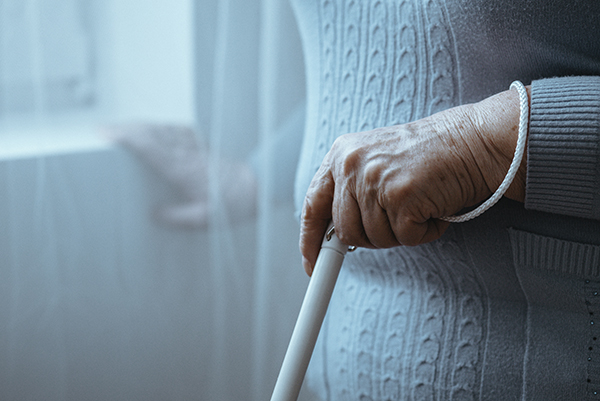February 17, 2018
 Impacting an incredible number of Americans, vision loss is as varied as the people who experience it – from simply the need to put on a pair of reading glasses to browse through the morning paper, to complete blindness. And it’s even more prevalent in older adults, with one in every three senior citizens over age 65 experiencing some form of eye disease that affects vision, such as glaucoma, cataracts, macular degeneration, among others. Thankfully, much like a lot of other challenging conditions, technology continues to explode with options to improve well-being for anyone experiencing vision problems. Simply take a glance at a few of the tools for low vision that are currently available:
Impacting an incredible number of Americans, vision loss is as varied as the people who experience it – from simply the need to put on a pair of reading glasses to browse through the morning paper, to complete blindness. And it’s even more prevalent in older adults, with one in every three senior citizens over age 65 experiencing some form of eye disease that affects vision, such as glaucoma, cataracts, macular degeneration, among others. Thankfully, much like a lot of other challenging conditions, technology continues to explode with options to improve well-being for anyone experiencing vision problems. Simply take a glance at a few of the tools for low vision that are currently available:
- Be My Eyes. This incredible app links sighted volunteers with people that have low vision or blindness, and literally allows them to see, through the person’s phone, a variety of immediate needs – such as checking expiration dates of food or affirming that an outfit matches. And, “It’s getting used for many amazing things,” according to Alexander Jensen, Be My Eyes’ Community Director. “We received an email from a woman who said she used a Be My Eyes volunteer to check her wedding gown for any stains before the ceremony started.”
- Seeing AI. An even more recently released application, Seeing AI also utilizes a sight-impaired person’s phone, allowing for identification of a person to whom the camera is facing, including recognition of the person’s facial expressions to pick up on feelings and mood. Also, it can scan barcodes to identify items (with an audible alert when the camera is close to a barcode), verify denominations of currency, and a wide variety of other functions, even without an Internet connection.
- Robocane. This is certainly no ordinary white cane! Built with a computer, microphone and 3-D camera, RoboCane can identify obstacles and provide voice prompts to let the user know what’s ahead. It can also guide its user through use of a motorized roller tip once floor plans of a preferred route are entered into its computer, and can also take spoken commands from its user and provide audio feedback through a wireless earpiece.
Continuum, assisted home care St. Louis provider, can help improve quality of life for individuals with vision impairment through safe, reliable transportation and accompaniment to outings, help with household chores and personal care tasks, and even more. Call us any time at (314) 863-9912 for a complementary in-home consultation to learn more!
